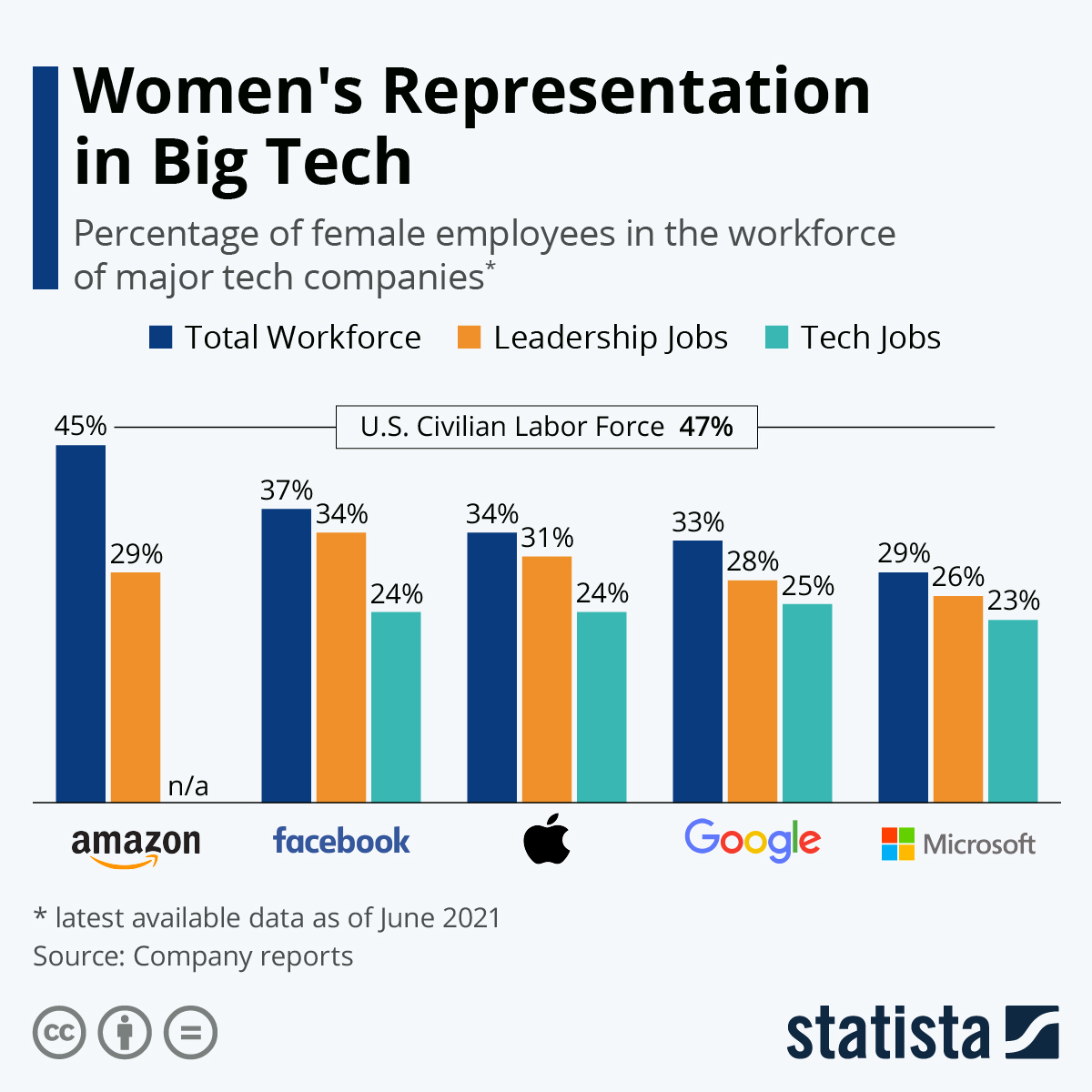As the UN-sponsored Generation Equality Forum got under way in Paris on Wednesday, world leaders, philanthropists and private sector companies pledged $40 billion in new investments as part of a Global Acceleration Plan for Gender Equality. The Bill & Melinda Gates Foundation lead by example, announcing a $2.1 billion commitment to advance women’s leadership, reproductive health and economic empowerment. While progress has been made over the past decades, gender equality is still far from achieved, even in a sector considered as progressive as the tech industry.
In fact, the technology sector is actually further away from achieving gender equality than the U.S. economy as a whole. While the percentage of women in the United States labor force has gradually climbed to 47 percent over the past decades, it is still significantly lower in the tech sector.
As our chart, based on self-reported company figures, indicates, female employees make up between 29 percent (Microsoft) and 45 percent (Amazon) of the total workforce at America's largest tech companies, the so-called GAFAM group. Looking at actual tech jobs, that percentage drops much lower, as women take up fewer than 1 in 4 technical roles at each of the companies reporting such a figure (Amazon does not).
In terms of leadership positions, the status of women in the technology sector, as represented by its most prominent (and valuable) companies in our chart, is roughly on par with the rest of the economy. According to the lastest available data, women hold 26.5 percent of executive, senior-level and management positions in S&P 500 companies – a percentage many tech companies match or exceed, but one that is still far from parity.




















